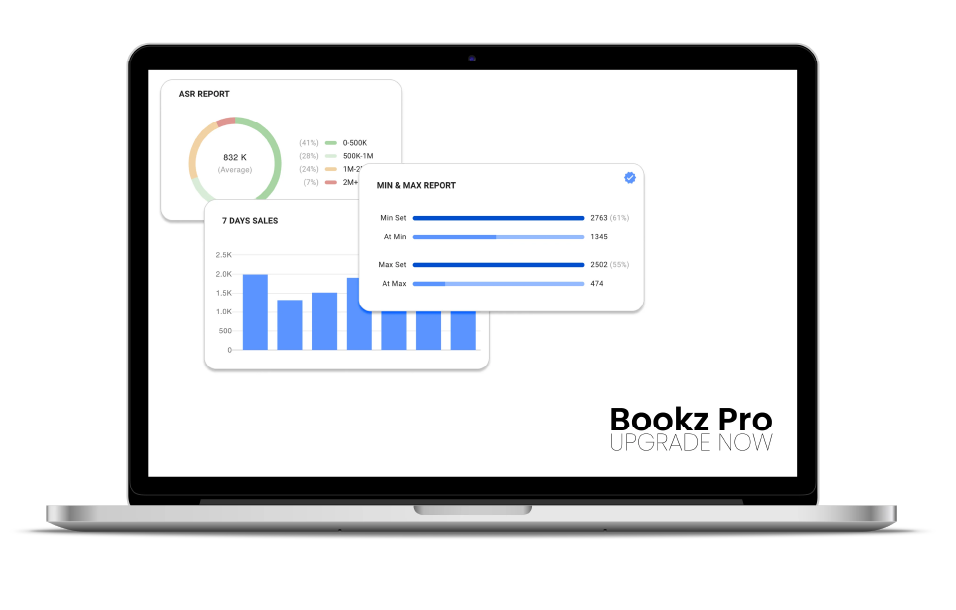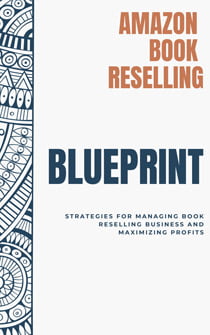Amazon Seller Plans Compared: Amazon Professional Seller vs Individual?

Introduction
Having an Amazon business means various factors to consider; one thing is understanding the types of seller plans you want to pursue. With Amazon, you can choose between two plans, either an individual or a professional seller plan. Each of them has different features and key points you must understand to get your choices in fair square, or if it really suits well with the type of business you have. So, what would it be? Amazon professional seller vs individual seller plan? You will understand clearly once you go into the details as you read this blog until the end.
Difference Between Amazon Professional Seller vs Individual
Some new sellers are still confused about how a professional seller plan is different from an individual plan. So, let’s understand this bit by bit so that we can fully grasp its distinctions.
The main factor in choosing between the two plans is your expected sales volume.
- Individual Plan: This plan is best for sellers expecting fewer than 40 sales per month. There’s no monthly fee, but you pay a $0.99 per-sale fee.
- Professional Plan: Ideal for sellers expecting more than 40 sales per month. You pay a $39.99 monthly fee but no per-sale fee
Features of Amazon Professional or Individual: Which is Right for You?
Exploring the key features of the Amazon Individual and Professional Seller plans will help you determine the best fit for your business. Assessing and examining these questions can yield answers to help your decision-making process. Each plan offers unique benefits and limitations tailored to different selling needs.
By understanding these features and how they align with your goals, you can make an informed choice that sets your business up for success on the Amazon platform. Let’s dive into the specifics of what each plan has to offer!
Selling Less Than 40 or More Items Per Month?
When deciding between Amazon professional seller and individual seller plans, you must consider your expected sales volume and the associated costs.
Professional Seller Plan
The Professional Seller Plan is tailored for those anticipating selling more than 40 items per month. Its monthly subscription fee is $39.99.Unlike the individual plan, professional sellers do not incur a fee for each item sold, regardless of the number of items they sell.
Individual Seller Plan
On the other hand, the Individual Seller Plan is more suitable for those who plan to sell 40 items or fewer each month. Individual sellers pay no monthly subscription fee but incur a $0.99 fee for each item sold.
For sellers with high sales volumes, the Professional plan offers significant savings. For example, if you sell 1,000 items monthly, the Individual plan would cost you $990 per-item fee. In contrast, the Professional plan would only cost $39.99, making it far more economical.
Curious About Winning the Buy Box?
The Buy Box is a special section on Amazon’s product page that allows customers to add items to their cart and purchase them quickly. This section is crucial for sellers because it significantly increases visibility and sales. When multiple sellers offer the same product, Amazon uses a complex algorithm to decide which seller gets the Buy Box at any time.
Perks of Winning the Buy Box:
- Increased Sales: Most purchases on Amazon happen through the Buy Box, making it vital for sellers.
- Eligibility Factors: To qualify for the Buy Box, sellers must consider pricing, shipping options, seller ratings, fulfillment methods, and customer service.
It’s important to note that the Individual Seller Plan does not provide access to the Buy Box, which can limit your visibility and sales potential.
If you are a private label seller, having the Buy Box is essential. If you’re exploring other selling methods like wholesale or arbitrage, paying for the Professional Seller Plan may be worth it. This plan allows you to compete for the Buy Box, potentially boosting your sales and expanding your customer base.
Knowing If Product Categories Are Restricted?
If you’re considering selling in restricted categories, the Professional Seller Plan allows access to these areas, allowing you to offer a wider range of products. In contrast, the Individual Seller Plan does not provide this access, which may limit your product offerings.
Approval Process: Sellers must undergo an application process to sell in a restricted category. This process may include providing documents proving they are legitimate businesses and that their products meet safety and quality standards.
Eligibility Criteria: The requirements for gaining access to these categories can vary. Sellers might need to show:
- Proof of business legitimacy.
- Compliance with safety and quality standards.
- Good seller performance metrics, such as low defect rates and timely shipping.
Some examples of restricted categories include:
- Fine Jewelry
- Professional Services
- Sports Collectibles
- Grocery, Food & Gourmet
- Video, DVD, & Blu-ray
- Automotive Parts & Accessories
- Fine Art
- Fashion Jewelry
- Industrial & Scientific
- Collectibles Coins
- Business to Business (B2B) products
The rules and requirements for restricted categories can change, so it’s essential to regularly check Amazon’s seller resources to stay informed.
If you want to sell products in restricted categories on Amazon, be prepared to go through an approval process and meet specific requirements. Choosing the right seller plan can also help you access more product options and grow your business.
Want to Grab the Attention of Buyers with Listing Placements?
Think of Featured Listing Placements on Amazon like the prime display spots in a busy store. These are the areas where your products get the most attention, making it easier for customers to find and buy them.
Sellers can use Amazon’s advertising services to secure these valuable placements, such as Amazon Sponsored Products and Amazon Sponsored Brands. These services allow you to bid for these high-visibility spots, but they may not be included in your regular seller plan.
Only sellers with the Professional Seller Plan can access these featured placements, which can greatly increase your product’s visibility and chances of making sales.
If you want your products to stand out and attract more customers on Amazon, consider using the Professional Seller Plan to take advantage of Featured Listing Placements.
All in One Software
for Book Sellers
Scout Better – List Faster – Reprice Smarter
Over 30% Business Growth
Achieved by Our Clients

Thinking About PPC Campaigns to Drive Traffic?
Today, simply listing your product on Amazon isn’t enough to generate sales. You need to market your products actively, and one effective way to do this is through PPC (Pay-Per-Click) advertising. While you could try to drive traffic from other websites, using PPC adds more product protection and visibility.
If you have a Professional Seller Account, you can access tools to create and manage PPC campaigns effectively. This plan helps increase your product’s visibility and sales potential. In contrast, the Individual Seller Plan has limitations that make it harder to use PPC effectively.
Why Use Amazon PPC?
- Increased Visibility: Amazon PPC helps your products appear at the top of search results, making it easier for customers to find them.
- Targeted Traffic: Since many people shop on Amazon with the intent to buy, PPC can help you reach customers who are already looking for products like yours.
- Flexibility: You can run different campaigns to see what works best for your products, allowing you to adjust your strategy based on performance.
Consider your advertising strategy when deciding between the Amazon Professional vs Individual Seller Plans. The Professional Seller Plan is better for those who want to fully utilize PPC to maximize their product’s reach and sales. If you’re serious about growing your business on Amazon, investing in the Professional plan and using PPC campaigns can be a smart move.
Then, We Have Taxes–How Will You Manage It?
Understanding the tax rules for selling on Amazon is important and can be a bit tricky. Here’s a simpler breakdown:
If you sell on Amazon as a sole proprietor, you usually report your earnings on your personal tax return. With an Individual Seller account, you pay a lower monthly fee, but you must handle sales tax for states where you owe it, which can be complicated because each state has different rules.
If you have a Professional Seller account, it might be better if you run your Amazon business as a legal entity, like an LLC or corporation. This setup can protect you from personal liability and may change how you handle taxes. It’s a good idea to talk to a tax expert to find the best way to manage your taxes and ensure you follow all sales tax rules.
Amazon also offers a service called Marketplace Tax Collection (MTC). This service automatically calculates and pays sales tax for you in states that require it, making tax compliance easier depending on your sales volume and the states you sell in.
Are You Planning to Offer Discounts or Promotions?
If you sell on Amazon as an individual, you have limited options for offering discounts and promotions. You can provide basic money-off discounts, but you can’t use more advanced promotion types. Individual sellers also can’t participate in Lightning Deals or get reviews through the Early Reviewer Program, which could help increase sales.
However, if you have a Professional Seller account, you can access a wider range of promotional tools. Professional sellers can create percentage-off discounts, buy-one-get-one offers, and volume-based deals. They can also run Lightning Deals and participate in the Early Reviewer Program to get more reviews. Professional sellers can also use Amazon’s advertising platform to promote their products, boosting visibility and sales.
A professional account gives you more flexibility and options to offer discounts and promotions to drive sales, while an Individual account has more limited promotional capabilities.
Wanted to See Reports for Data Analysis?
With an Individual Seller account, reporting options are quite basic. Sellers can access order details and transaction history, but they lack advanced reporting features. This often leads Individual sellers to rely on manual tracking methods, such as spreadsheets, to manage their business data effectively. They miss out on valuable insights that could help improve their sales strategies.
In contrast, a Professional Seller account offers a broader range of reporting tools and data analysis options. Professional sellers can access comprehensive reports that provide insights into sales performance, customer behavior, and inventory management.
Benefits of Reporting Features in Professional Seller Account:
- Sales and Traffic: See what’s selling, how many people are visiting your product pages, and how often they buy.
- Advertising Reports: Understand how your ads are performing and fine-tune your campaigns for better results.
- Inventory and Fulfillment: Keep track of your stock levels, shipping costs, and customer returns.
- Account Health: Make sure you’re meeting Amazon’s standards and avoid any problems.
- Brand Performance: If you have a brand store, measure its success and improve your marketing.
While Individual sellers have limited reporting capabilities and often resort to manual tracking, Professional sellers benefit from a wealth of data-driven insights that can significantly improve their business operations and sales performance.
Prefer for a Complete Bulk Action
When considering whether to choose an Amazon professional seller vs Individual on Amazon, think about your need for bulk actions to simplify your operations. The Professional Seller Plan allows you to efficiently manage bulk actions, making it easy to handle multiple listings, updates, and inventory changes simultaneously. This particularly benefits sellers with larger inventories or those looking to scale their business.
In contrast, the Individual Seller Plan has limitations on bulk actions, making it harder to manage multiple listings effectively. Suppose you anticipate needing to perform bulk actions regularly. In that case, your choice should reflect your operational needs and the level of efficiency you desire in managing your product listings and inventory on Amazon.
Do You Want to Use Third-Party Tools and Apps?
Using third-party apps and tools can be a huge advantage for Amazon sellers.
If you have a Professional Seller account, you likely manage many products and customers.
This is where these tools become very useful. They help you keep track of your inventory so you know when to restock and avoid running out of popular items. You can also analyze your sales data to identify trends, which helps you make better decisions about what to sell and how to price your products.
Additionally, automated pricing tools like Bookz Pro help keep prices competitive, as well as software that streamlines order processing. These tools can be incredibly helpful for sellers looking to grow their business and stay organized.
Discover Amazon Selling Strategies and Boost Your Sales!

Amazon Book Reselling Blueprint
Read now, explore our full guide. Your revolution starts here. Subscribe to get the blueprint!
Are you tired of trying to find the strategy, tool, or guide to help you efficiently manage your Amazon business workflow? Most Amazon sellers experience the same challenges as you. But with a simplified tool and guide, you will get a fast, all-in-one solution for all your Amazon business problems.
Whether it’s about correct pricing, fulfillment, or sourcing books and reports, Bookz Pro has you covered to streamline operations and maximize profit. Pair it up with our newest handy Amazon Book Reselling Blueprint, which you can download at any minute without breaking the bank! Yes, it is free. By downloading it, you will be introduced to the tools, strategies, and tricks to bring your business potential to greater heights.
Conclusion
Deciding between the Amazon Individual and Professional Seller Plans requires careful consideration of your specific business needs and goals. By answering the questions outlined above, you can determine which plan best aligns with your selling strategy. If you’re just starting out and selling a few items, the individual plan might be a good fit. However, if you have bigger plans and want to maximize your sales potential, the professional plan is the way to go Ultimately, both plans have advantages and limitations.
Your decision should be based on your current sales volume, growth aspirations, and the features you need to succeed. Remember, you can always switch plans as your business evolves, so choose the one that best supports your goals today.
Frequently Asked Questions
No, individual sellers do not have access to the buy box, which can limit visibility and sales potential. Only professional sellers can compete for the buy box.
Yes, individual sellers cannot sell in restricted categories, while professional sellers can apply for access to these categories, which include items like fine jewelry and grocery products.
Professional sellers have access to advanced promotional tools, including percentage-off discounts, Lightning Deals, and the Early Reviewer Program, which can help boost sales.
Individual sellers have basic reporting options, while Professional sellers benefit from comprehensive reports that provide insights into sales performance, customer behavior, and inventory management.
Consider your expected sales volume, the need for advanced features like bulk actions and promotional tools, and whether you want access to restricted categories or the Buy Box.



